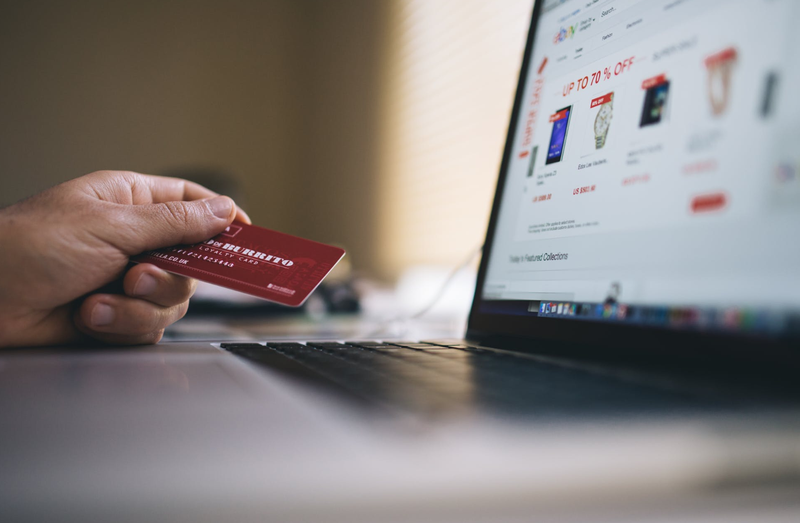Consumerwatch: How to avoid a scam when buying or selling online
Updated | By Wendy Knowler
Here’s how to protect yourself, writes Wendy
Knowler.

Listen to part 1 and 2 here or read the details below:
And the items most in demand have a lot do to with lockdown, understandably.
So if you’ve got garden equipment, outdoor furniture, gym equipment, printers,
office chairs - anything to do with enhancing the home environment or enabling
working from home, now is the time to sell it, says Gumtree general manager
Claire Cobbledick.
But do proceed with a huge dollop of caution and suspicion. Last week, Vanessa Younghusband of Richards Bay fell victim to a scam via a Gumtree ad.
She told Consumerwatch: “I had the most unfortunate experience while purchasing a chicken coop and 8 chickens online via a Gumtree advert. The woman I dealt with at the so-called Mossel Bay poultry farm was so friendly and helpful; however, looking back I can see how she caught me. I paid R4000 on June 16 and R3760 the next day via EFT," said Vanessa.
But Vanessa got neither coop nor chickens and when she did some digging, she found that the website is based in Israel.
“The cellphone number is not RICA'd and I have been blocked.”
She’s also found evidence of the same people selling kittens via Gumtree, OLX and Junk Mail (The puppies and kittens are as non-existent as the chicken coops and chickens.)
Vanessa has tried to get her money back from via her and the fraudster’s bank, to no avail, reported the case to the police and the advertising platforms, and logged a complaint on HelloPeter.
The HelloPeter post is a great public service, by the way. You could “save”
others from making the same mistake.
Another victim, Daphne Endersby, was also scammed this month and shared her
story on Facebook. “They claim not to have received my payment,” she said.
“I suspect their fancy chicken coup photos were lifted directly off some other
website somewhere in the world,” she said.
It certainly looks that way. Always a red flag.
Always look at the background of photos of products being posted by someone claiming to be in South Africa. Something is bound to look off. And always check out a company online before sending them money.
If you’re the one selling something on one of these sites, be aware that fraudsters are very keen to get their hands on your laptop or cellphone without paying for it.
“Mia” bought a laptop from a major electronics retailer for R4990, and quickly realised it wasn’t suitable for her music editing needs, so she advertised it for sale on Gumtree at R5200, adding “negotiable” in the hope that she’d get what she’d paid for it.
A man responded, offering to pay the full price, saying he needed it urgently. That was the first red flag - why wouldn’t a genuine buyer negotiate on a “negotiable” price?
The crook sent Mia an SMS “from his bank”, showing a pending payment, and said he'd send “one of his IT guys” to fetch the laptop. It turned out to be an Uber driver, but Mia was none the wiser. The fraudster then sent a fake SMS from his bank, "confirming payment”, and Mia then handed her laptop to the Uber driver, despite him asking her: “Are you sure this isn’t a scam?”
Off went the Uber and - surprise! - the buyer ignored all Mia’s Whatsapps from then on.
“We urge sellers to act with extreme caution,” Cobbledick said.
“Don’t reveal personal details, don’t allow yourself to be rushed to close a sale, make absolutely sure that the buyer’s money is in your account before you hand over the goods, and trust your gut,” she said.
“We also ask that anyone who has a negative or worrying Gumtree-related
experience flags it with us immediately.”
If you’re thinking: “Why not just insist on cash, as a seller?” the pandemic is
playing very nicely into the hands of scammers, as cash payments are not
considered safe, given the risk of virus transmission. The country’s biggest online retailer, Takealot, will currently not accept
cash-on-delivery payments for this reason.
But there is a safe way to buy and sell single items - using a trusted escrow platform.
Ian Harrison, CEO of Cape Town-based 3PayMe ( https://www.3payme.com), explains: “The seller creates a virtual sales tag for the item on sale, with the item description and price, and when done, they get a unique tag reference code and a direct URL link to that tag.
“The buyer will be given this information to make payment and they then go onto 3PayMe and do so, using their debit or credit card or using a direct EFT option.
“Once they have paid, they are given a secret PIN that they will later give to the seller in order for the seller to release the money into their account.
“And once payment is made, the seller gets notified that payment has been made but they don't get the payment yet - when the transaction is concluded and the goods change hands, the buyer gives the seller the secret PIN which they then use on the 3PayMe platform to release the money into their account.”
It’s an easy-to-use and manage the platform, Harrison says, and the site has been
set up to look like an app when viewed on a mobile device, “so navigation is
fast and use is really easy and intuitive”.
Other escrow service providers operating in South Africa include: Standard Bank’s escrow service
Also read: Online Retailers Feel The Heat
Show's Stories
-
SARS can and will seize your passport if needed
SARS can seize passports and impose travel restrictions on tax dodgers, ...
Stacey & J Sbu 55 minutes ago -
Solar storm alert in South Africa
A severe solar storm recently hit Earth, disrupting satellite navigation...
Stacey & J Sbu an hour ago